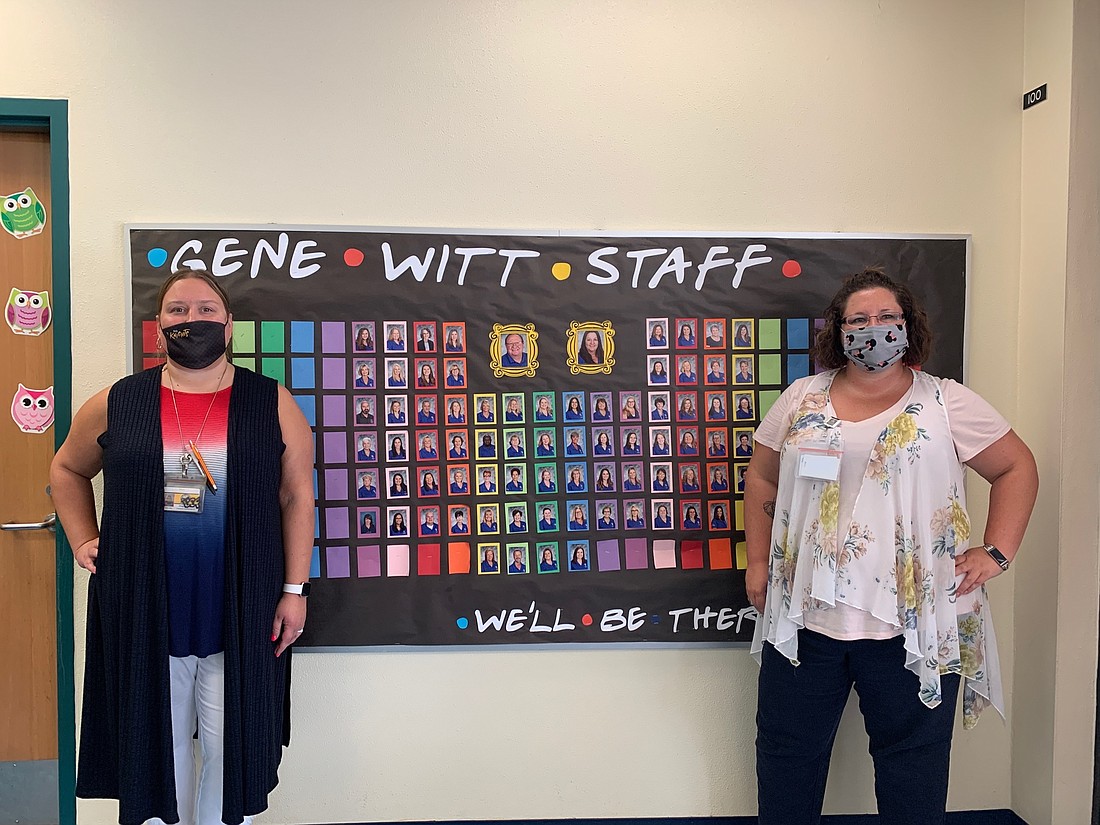- April 8, 2025
-
-
Loading

Loading

At the start of school, Megan Silvestri normally meets children who are struggling with being away from their parents. That separation anxiety is most evident with pre-K and kindergarten children because it’s their first time on campus.
But this year, it’s been different.
“We’re definitely seeing an increase in that, and we’re even seeing it with older students where they just don’t want to be leaving home,” said Silvestri, a school counselor at Gene Witt Elementary School. “They’re experiencing a lot of different emotions about wanting to be home, where they may be cautious about coming in [to school].”
The change makes sense considering students have been out of school for five months, first leaving the classroom for e-learning in March and then being home with their parents for the summer.
However, the increased anxiety means a greater demand on services from counselors, who are tasked with helping develop students’ social emotional learning, assisting with meeting learning needs and creating schedules at middle and high schools.
School counselors now also have to tackle the mental health issues and learning gaps arising as a result of the pandemic.
“Counselors are a front-line defense for helping students understand what a feeling is, especially now when you have a lot of emotions going on,” said Lisa Bennett, the school climate coordinator for the School District of Manatee County.
Bennett said many students are doing well with the adjustment back to school, but some are worried about returning to school, wearing a mask or possibly testing positive for COVID-19.
Bennett said the district will be sending out a survey to families, so schools can assess the needs of students mentally and academically. Bennett hopes to release the survey by Sept. 21.
With those results, counselors can better address specific needs in an individual or group setting.
Teachers are taking time now to conduct different diagnostic testing on students’ academic abilities to determine if there was any learning loss from shifting to e-learning at the end of last year. After results are in, teachers can work with counselors to develop interventions to best address students’ needs and monitor the interventions to see if they are helping close the gap or if students will need more support.
Counselors will continue going into classes to provide lessons on topics including coping skills, ways to better manage emotions and personal safety training.
With students being at home with e-learning or in the classroom this year, counselors have had to be creative in the ways they’re reaching out to families.
Silvestri said she is reposting lessons online and notifying families the counselors are available for live conferences if students need face-to-face sessions.
Bennett said some counselors are creating virtual calming rooms for students to have access to 24/7, and others are creating Bitmoji offices.
“Everybody is being so creative,” Bennett said. “Counselors are doing out-of-the-box things. It’s refreshing to see that it’s forcing all of us to look at our practices and get up with the times. Who thought teleconferencing would be a common practice for everybody? It’s one of those lasting impacts that maybe this whole thing is going to provide. It’s a new way of thinking about our practice and how we reach students.”
Silvestri said she’s already heard concerns from some Gene Witt teachers and expects demand for smaller group student counseling sessions will be up. She must be careful how she brings groups together because of social distancing guidelines, but she said she knows it will be impactful.
“We work hard to make sure that students and all staff know our doors are always open,” Silvestri said. “We’re available to support students.”